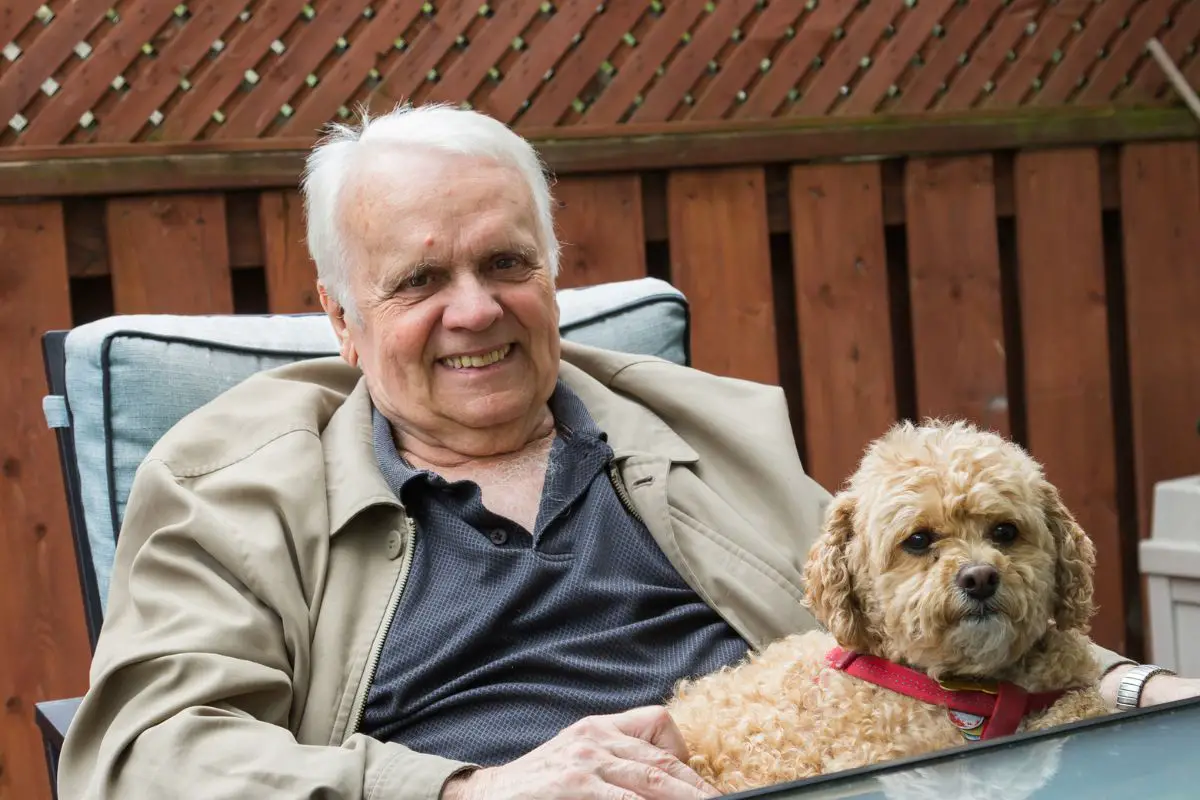As seniors transition into retirement or face age-related challenges, maintaining a structured daily routine becomes increasingly important for their physical and mental well-being.
Dogs, with their innate need for consistent care and attention, can play a crucial role in helping seniors establish and maintain healthy daily routines.
This article explores how canine companions contribute to structure and purpose in seniors’ lives.
1. Morning Wake-up Call
Dogs are natural early risers, encouraging their senior owners to start the day at a consistent time.
The responsibility of feeding and walking a dog provides immediate purpose upon waking.
This morning routine helps seniors establish a regular sleep-wake cycle, which is crucial for overall health.
The act of caring for a dog first thing in the morning can boost mood and energy levels.
Dogs’ enthusiasm for the new day can be infectious, promoting a positive start for their owners.
Regular morning walks with a dog provide exposure to natural light, which helps regulate circadian rhythms.
This consistent morning routine can help seniors who struggle with conditions like depression or anxiety.
2. Regular Exercise and Outdoor Time
Dogs require daily walks, ensuring that their senior owners get regular exercise.
These walks provide a low-impact form of physical activity suitable for many seniors.
Regular outdoor time with a dog exposes seniors to fresh air and nature, beneficial for mental health.
Dog walks create opportunities for social interaction with neighbors and other dog owners.
The responsibility of walking a dog motivates seniors to maintain mobility and stay active.
Outdoor activities with a dog can help seniors maintain better cardiovascular health and bone density.
The routine of daily walks can become a cherished part of a senior’s day, something to look forward to.
3. Mealtime Structure
Dogs thrive on regular feeding schedules, which can help seniors maintain consistent mealtimes for themselves.
Preparing meals for both the dog and themselves can give seniors a sense of purpose and responsibility.
The routine of feeding a dog can serve as a reminder for seniors to eat regularly, which is crucial for maintaining health.
Mealtime routines with a dog can combat feelings of loneliness often experienced during solitary meals.
The act of measuring and preparing dog food can help seniors maintain fine motor skills and cognitive function.
Regular feeding times for dogs can help structure the rest of the day’s activities for seniors.
The joy dogs express at mealtime can be uplifting for seniors, making the routine more enjoyable.
4. Afternoon Activities and Rest
Many dogs enjoy afternoon playtime or training sessions, providing mental stimulation for seniors.
These activities can serve as a break in the day, helping to prevent afternoon slumps or boredom.
Engaging with a dog in the afternoon can help seniors maintain cognitive function and memory.
For seniors who nap, having a dog can ensure they don’t oversleep and disrupt nighttime rest.
Grooming a dog in the afternoon can be a relaxing activity that also maintains fine motor skills.
Dogs often settle down for an afternoon rest, encouraging seniors to take time to relax as well.
The presence of a dog can make quiet afternoon activities like reading or watching TV more enjoyable.
5. Evening Routine and Companionship
Evening walks with a dog provide a natural wind-down activity before bedtime.
The routine of preparing a dog for bed (like a final potty break) can signal to seniors that it’s time to start their own bedtime routine.
Having a dog nearby can provide a sense of security for seniors living alone at night.
Evening cuddle time with a dog can help reduce stress and promote relaxation before sleep.
The responsibility of ensuring the dog is settled for the night gives seniors a sense of purpose.
Dogs can provide comfort and companionship during what might otherwise be lonely evening hours.
The presence of a dog can help establish a consistent bedtime, which is important for good sleep hygiene.
6. Maintaining Social Connections
Dogs provide a natural topic of conversation, helping seniors maintain social connections.
Regular dog walks create opportunities for seniors to meet and interact with neighbors and other dog owners.
Caring for a dog can give seniors a sense of purpose and something positive to share with friends and family.
Dogs can serve as social facilitators, making it easier for seniors to engage in community activities or events.
The responsibility of dog ownership can encourage seniors to stay connected with veterinarians and pet care professionals.
Sharing photos or stories about their dogs can help seniors stay engaged with family members, especially grandchildren.
Dogs can provide a reason for family and friends to visit, helping to combat social isolation.
Conclusion
Dogs play a significant role in helping seniors maintain structured, purposeful daily routines.
From providing a reason to wake up in the morning to offering companionship throughout the day, dogs contribute to seniors’ physical health, mental well-being, and social engagement.
The mutual benefits of the human-canine bond make dogs invaluable companions for seniors seeking to maintain an active, structured lifestyle.
Share this article on Facebook to spread awareness about the positive impact dogs can have on seniors’ daily routines!
Your friends and family might find this information helpful for themselves or their older loved ones considering pet ownership.
SHARE now with your friends!
- Hero Farm Dog Survives Epic Battle with Coyote Pack - December 9, 2024
- The 10-Minute Bedtime Routine That Changed My Dog’s Sleep Forever - November 29, 2024
- Creating a Safe Space for Nervous Pets: Your Guide to Pet-Friendly Havens - November 25, 2024

